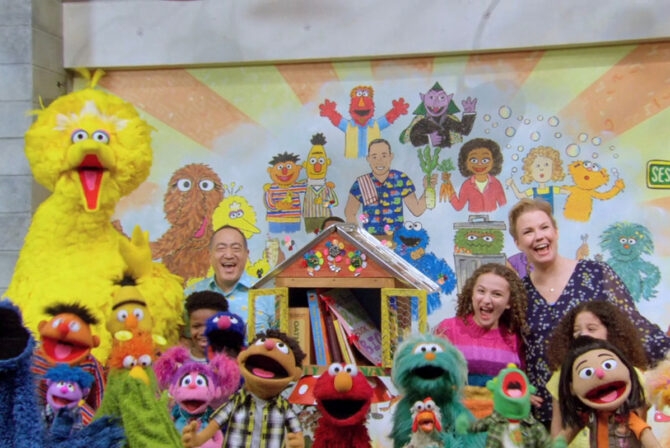One great gift of parenthood is the opportunity to experience the world through children’s eyes. While we may rejoice in our children’s observations, sometimes we find ourselves unsure how to answer the questions they raise. This is often the case when they ask questions about God. “What does God look like?” “Where does God live?” “How come God lets bad things happen?”
These kinds of questions often echo issues left unresolved in our own minds and hearts. Here are some things to remember when they emerge from our little ones:
1. Judaism does not have a rigid understanding of God.
When people tell me they don’t believe in God, I ask them to describe the God they don’t believe in. When they finish I say in agreement, “I don’t believe in that God either.” Often, if we are raised without being encouraged to grapple with the notion of God, the “old man in the sky” image of a God who metes out punishment and reward fills the void. Unable to accept that idea, people usually assume that the only alternative is to reject God entirely. The names used for God in Jewish texts and liturgy are seemingly endless. For example, “HaShem,” the Name; “HaMakor,” the Source; “Malkeinu,” our Sovereign, “HaMakom,” the Place; “HaRachamim,” the Compassionate One; “Tsuri,” My Rock, “Ein Sof,” Without End. These, and the multitude of others, reflect the vast possibilities of how we might experience and explain God’s presence in our lives.
2. There is no “right answer.”
When our preschool children ask us why the sky is blue, we can go to the internet for a scientific answer, but a description of the atmosphere’s composition and electromagnetic waves may not be what they need. In the same way, a theological discourse on whether or not God is omniscient or omnipotent will likely miss the mark. Children’s questions may be a way for them to express their burgeoning spirituality. Leave space for your children to keep questioning and thinking for themselves. Engage in a conversation, rather than struggle to provide an answer. Spirituality requires questioning, imagining, and openness.
3. Positively reinforce your child’s curiosity.
Often, children are more spiritually astute than adults. Give your child the space to explore this aspect of themselves. A legitimate, supportive, and honest answer can be, “That’s a wonderful question. I ask myself that question sometimes. What do you think?”
4. Try to speak of God from a soulful place, rather than an intellectual one.
The word “belief” suggests something that can be proven or disproven. No one can argue with a personal feeling or experience. “I believe that God exists in the relationship between people” is not nearly as accessible or powerful as “I feel God inside me when I hold you.”
5. Actions often speak louder than words.
The Hasidic rabbi Menachem Mendel of Kotsk said, “God dwells wherever we let God in.” Simple rituals can let God into our lives and our children’s lives. When we light Shabbat candles and pause to watch the flames dance, sing the  Shema in a whisper before tucking our child into bed, gather the loose coins in the bottom of purses and pockets and set them aside for tzedakah (charity), we foster an environment which will allow spirituality to flourish.
Shema in a whisper before tucking our child into bed, gather the loose coins in the bottom of purses and pockets and set them aside for tzedakah (charity), we foster an environment which will allow spirituality to flourish.
6. Read!
Books about God or books with a Jewish flavor can help provide language and focus for us. Sandy Eisenberg Sasso’s God’s Paintbrush and In God’s Name are non-denominational picture books with beautiful illustrations which provoke and directly ask questions that you can discuss with your child. Some books for adult reading on this topic are When Children Ask About God by Rabbi Harold Kushner and Teaching Your Children About God by Rabbi David Wolpe.
The Maggid of Dubnov, an 18th century preacher, once told the following parable: Once there was a father who traveled with his son for miles. Each time they reached an obstacle, such as a river or mountain, the father lifted his son on his shoulders and carried him through the difficult terrain. Finally they came to their destination–a walled castle. But the gate of the castle was shut up, and there were only narrow windows on the sides of the wall. The father said to his son: “My son, up until now I have carried you. Now the only way we can reach our destination is if you will climb through the windows and open the gate for me from within.”
For many, becoming a parent ushers in a newly-found or recovered sense of the Divine. The miracle of birth, the wonder of raising a child, opens our eyes anew to God’s presence in our world. Allow your children to continue to lead you in this awe-inspiring journey of discovery.







